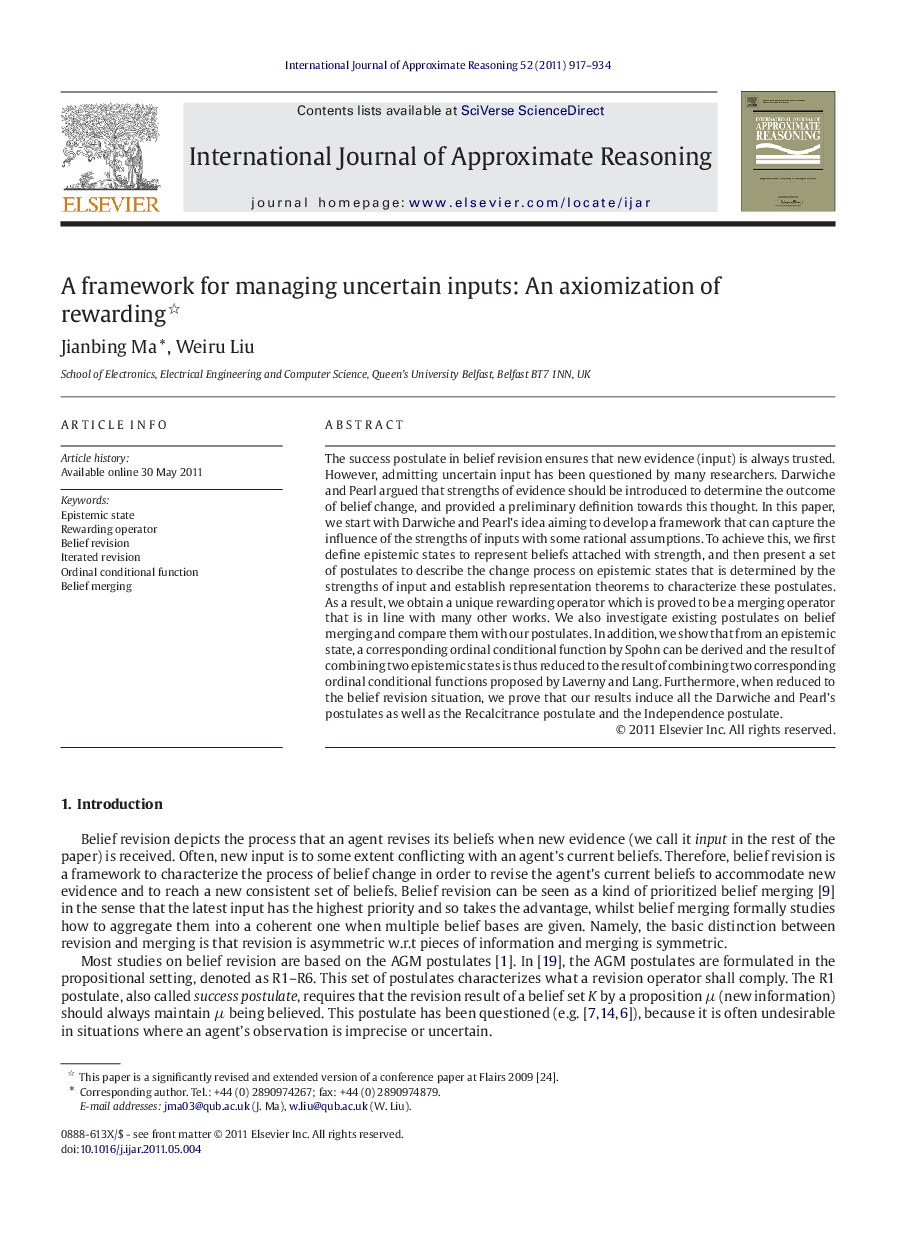| Article ID | Journal | Published Year | Pages | File Type |
|---|---|---|---|---|
| 398089 | International Journal of Approximate Reasoning | 2011 | 18 Pages |
The success postulate in belief revision ensures that new evidence (input) is always trusted. However, admitting uncertain input has been questioned by many researchers. Darwiche and Pearl argued that strengths of evidence should be introduced to determine the outcome of belief change, and provided a preliminary definition towards this thought. In this paper, we start with Darwiche and Pearl’s idea aiming to develop a framework that can capture the influence of the strengths of inputs with some rational assumptions. To achieve this, we first define epistemic states to represent beliefs attached with strength, and then present a set of postulates to describe the change process on epistemic states that is determined by the strengths of input and establish representation theorems to characterize these postulates. As a result, we obtain a unique rewarding operator which is proved to be a merging operator that is in line with many other works. We also investigate existing postulates on belief merging and compare them with our postulates. In addition, we show that from an epistemic state, a corresponding ordinal conditional function by Spohn can be derived and the result of combining two epistemic states is thus reduced to the result of combining two corresponding ordinal conditional functions proposed by Laverny and Lang. Furthermore, when reduced to the belief revision situation, we prove that our results induce all the Darwiche and Pearl’s postulates as well as the Recalcitrance postulate and the Independence postulate.
► We present a belief change framework in which prior beliefs and inputs are both represented in the form of epistemic states. ► We propose a set of postulates to characterize belief change operators. ► We provide representation theorems for our postulates which show the operators are rewarding operators. ► We show that these postulates can be seen as a justification of the combination of two OCFs. ► When reducing to the iterated belief revision situation, our postulates induce all of DP’s postulates.
